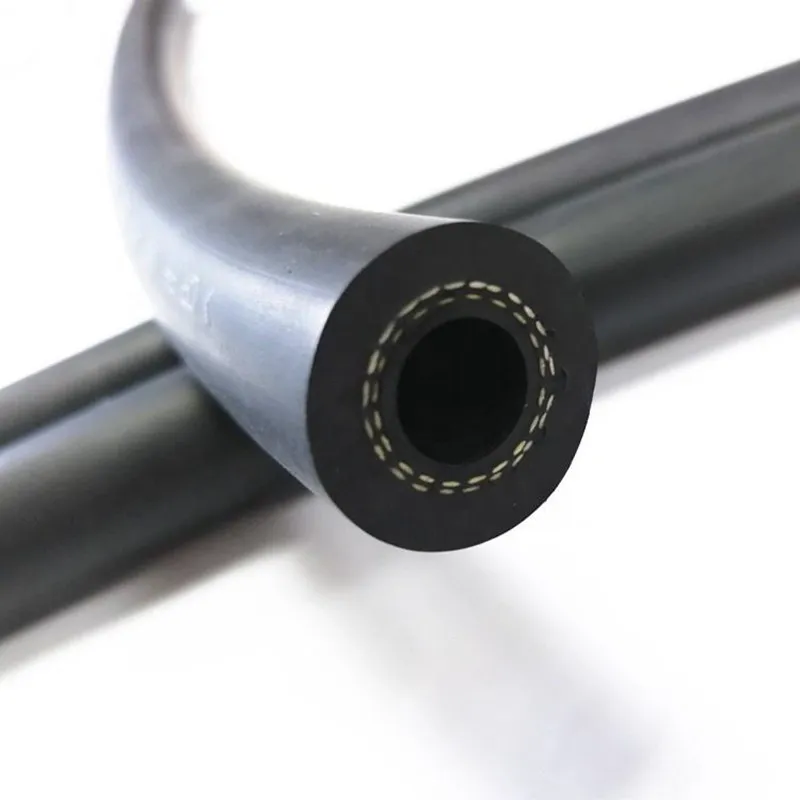Sep . 26, 2024 08:06 Back to list
ce certification metal hose factories
CE Certification for Metal Hose Factories Ensuring Quality and Safety
As global trade continues to expand, the demand for high-quality components in various industries has surged. One crucial element in many applications is the metal hose, which is used for the transfer of fluids and gases. However, to meet the stringent standards of Europe and other markets, manufacturers must ensure that their products are certified. This is where CE certification comes into play. CE marking signifies that a product complies with health, safety, and environmental protection standards set by the European Union. For metal hose factories, obtaining CE certification is not only a legal requirement but also a mark of quality that can enhance credibility and open doors to international markets.
Understanding CE Certification
CE marking is essential for products being sold in the European Economic Area (EEA). The certification process evaluates whether products meet specific directives that ensure safety, health, and environmental requirements. For metal hoses, this may involve compliance with regulations concerning pressure equipment, construction products, and machinery. The CE certification process requires thorough documentation and testing, ensuring that the product performs as intended and is safe for use.
The importance of CE certification cannot be overstated, particularly for metal hose factories. It acts as a quality assurance mark that instills confidence in customers and end-users. When a factory is CE certified, it demonstrates its commitment to excellence and adherence to global standards, making its products more attractive in the marketplace.
The CE Certification Process for Metal Hose Factories
For a metal hose factory to achieve CE certification, specific steps must be undertaken
1. Product Assessment The factory must evaluate its products to determine applicable directives and standards. For metal hoses, this could include the Pressure Equipment Directive (PED) or the General Product Safety Directive.
2. Technical Documentation The next step is the preparation of technical documentation. This should detail the design, manufacturing processes, and any testing that has been undertaken to ensure compliance with the relevant standards. This documentation serves as proof of conformity and must be maintained for inspection.
3. Testing and Inspection Many metal hoses require rigorous testing to confirm they can withstand the pressures and environments in which they will be used. Testing facilities may perform special assessments to check for leaks, pressure durability, and other important metrics.
ce certification metal hose factories

4. Declaration of Conformity Once testing is complete and all documentation is in order, the factory must draft a Declaration of Conformity. This document states that the product satisfies all applicable EU regulations.
5. Affixing the CE Mark After fulfilling all requirements, the CE mark can be applied to the product. This marking must be visible, legible, and permanent and signifies compliance.
Benefits of CE Certification
Obtaining CE certification has various advantages for metal hose factories
- Market Access CE marking allows products to be sold freely within the EEA. Without this certification, manufacturers would face significant barriers in entering European markets.
- Enhanced Reputation A CE mark enhances a manufacturer's reputation as it reflects their commitment to safety and quality. This can lead to increased trust among customers and differentiate them from competitors.
- Reduced Liability By adhering to established safety standards, manufacturers can minimize the risk of product liability claims arising from accidents or failures.
- Continuous Improvement The process of preparing for CE certification encourages factories to adopt better manufacturing practices and improve overall quality control systems.
Conclusion
In an increasingly competitive global market, CE certification for metal hose factories is an essential step for manufacturers aiming to expand their reach and ensure product quality. By complying with EU directives, these factories not only guarantee the safety and reliability of their products but also position themselves favorably in the eyes of customers and partners. As industries continue to prioritize quality and safety, the importance of CE certification will likely grow, making it a crucial goal for any metal hose manufacturer committed to excellence in their operations.
-
Best Four Steel Wire Spiral Hose Hydraulic R12 – Durable High-Pressure Hose Manufacturer
NewsJul.08,2025
-
High-Quality 1/4 Hydraulic Hose – Soft, Flexible & Durable Rubber Hoses for Industrial Use
NewsJul.08,2025
-
1 1 2 Inch Hydraulic Flexible Hose - Durable, Reliable, High-Pressure Solutions
NewsJul.07,2025
-
High-Quality 1 2 Rubber Hose - Durable, Flexible Hydraulic Solutions
NewsJul.07,2025
-
Discover SAE Hydraulic Hose Types - High Quality & Durable Hoses from Leading Factory Supplier
NewsJul.06,2025
-
High Pressure Wire Hydraulic Rubber Hose Supplier Durable & Reliable 1SN Hose Solutions
NewsJul.06,2025
